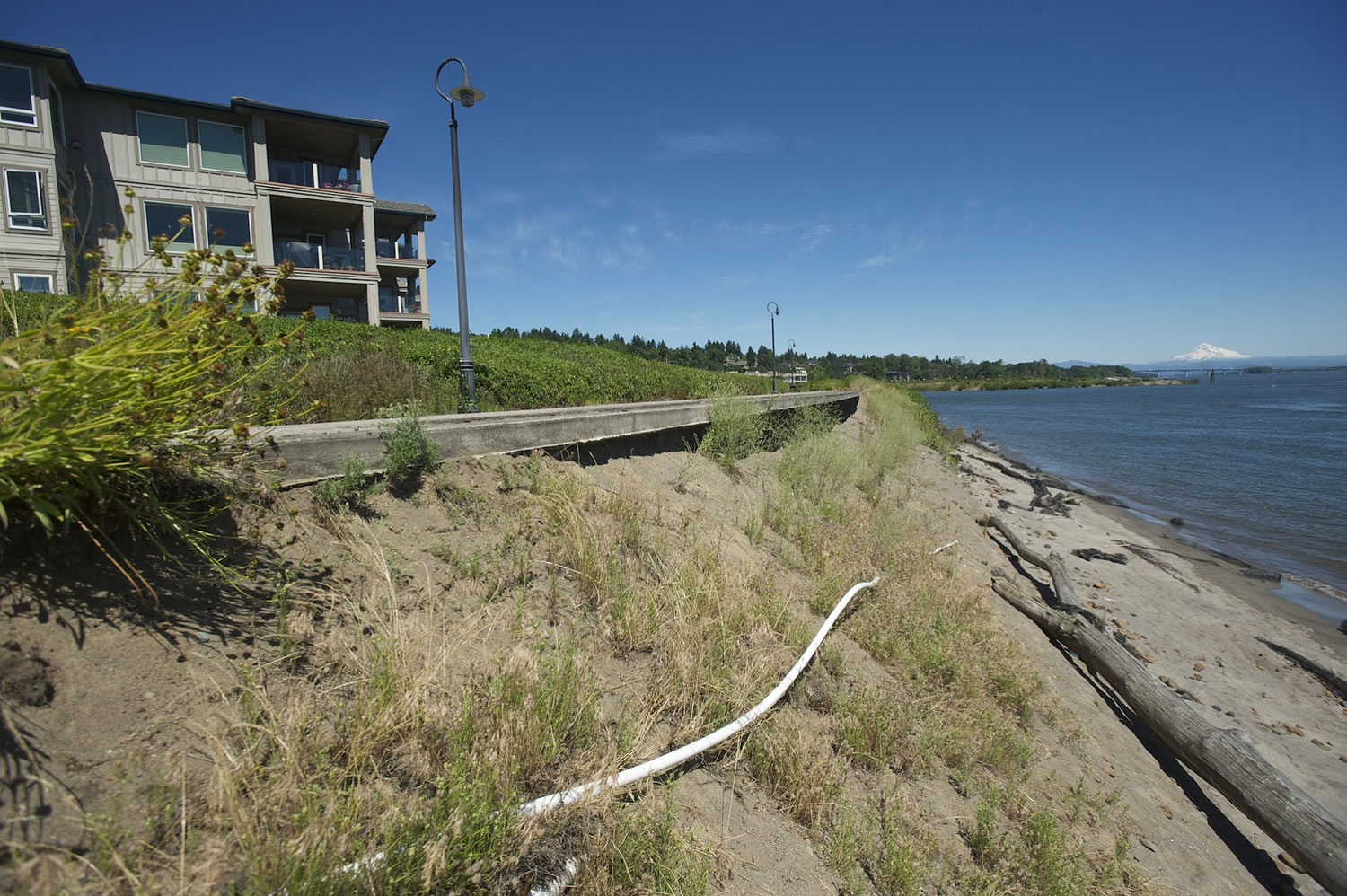Portions of the popular Waterfront Renaissance Trail were rendered unusable by slope erosion three years ago. Since then, Vancouver Mayor Tim Leavitt said he and city councilors have been asked numerous times when the trail will be reopened.
Finally, the answer is “soon.”
“That level of public interest is not surprising,” Leavitt said Wednesday. “This trail segment is one of the most visible and popular, as it is such a pleasant experience to walk along the waterfront of our city.”
In the spring of 2011, snowmelt and heavy rain drove the Columbia River to its highest level in 14 years. Erosion left two sections of the 5-mile-long trail in the area of Tidewater Cove unsafe, and they were closed to the public. The sections had been built in 1999 by private developers and deeded to the city.
The city council, which sets budget priorities, spent approximately $317,000 to fix the easternmost section of the damaged trail, knowing the second section would be more costly to repair because it sustained more damage.
In the intervening years, erosion and undermining of the base has continued to tear away the trail’s foundation, said Loretta Callahan, spokeswoman for the city’s public works department.
But on June 16, the council approved an $18 million spring supplemental budget, which included $2 million to fix the second section.
Callahan said construction will cost an estimated $1.4 million. The project has been put out to bid, and the city plans to award the contract in August.
The remaining $600,000 that was authorized for the project includes $250,000 for the potential need to rebuild about 2,500 feet of walkway, Callahan said, as well as engineering costs, staff time and permits. One reason why it has taken so long to fix the trail has been the number of permits involved. The work had to be vetted by the state Department of Fish and Wildlife, the state Department of Ecology, National Marine Fisheries Service and the U.S. Army Corps of Engineers, said Dan Swensen, public works engineering and construction services manager.
Money to fix the trail comes from the city’s general fund, which the city uses to pay for basic services such as police, fire protection and roads, as well as repairs to community assets.
Last year, Leavitt said spacing out the repair work served as a great example of the delicate balancing act the city must do in prioritizing services when there’s not enough money to do all of the work immediately.
The same day the council approved the supplemental budget, it heard from City Manager Eric Holmes that inflation and population growth have been driving Vancouver’s costs up by about 4 percent a year, outpacing 2.4 percent revenue growth.
“We’re fortunate to be in a safe place with the city budget to be able to complete the costly repairs to the Renaissance Trail,” Leavitt said.
Amenities like the Waterfront Renaissance Trail “are precisely what draws so many to live and play right here in Vancouver,” he said.
Since 2011, walkers and runners wanting to make it to the end of the trail at Wintler Park have been detoured along Columbia Way.
Making the first section safe involved repairing about 80 horizontal feet of failed slope, reinforcing another 250 horizontal feet of slope, removing and replacing 170 feet of paved trail and adding thousands of plantings, including dogwood, willow trees and a mix of grasses.
Previously, the slopes had been populated with blackberry bushes, but best practices for stabilizing slopes have changed over the years, Swensen said.
Work to fix the second damaged portion, which sits in front of Tidewater Cove condominiums, will be done in two parts, Callahan said.
The first part will involve removing and replacing about 700 feet total of trail surface and stabilizing the trail. The second part of the work will involve reinforcing the slope with plantings and rocks along about 650 feet of the trail, she said. In all, about 2,400 plants will be added.
To save money, the old overlook won’t be replaced, Callahan said.
The city still needs two permits. If the project goes according to schedule, construction will start in September during the low-water period and be finished by November and the trail will be reopened by January.



